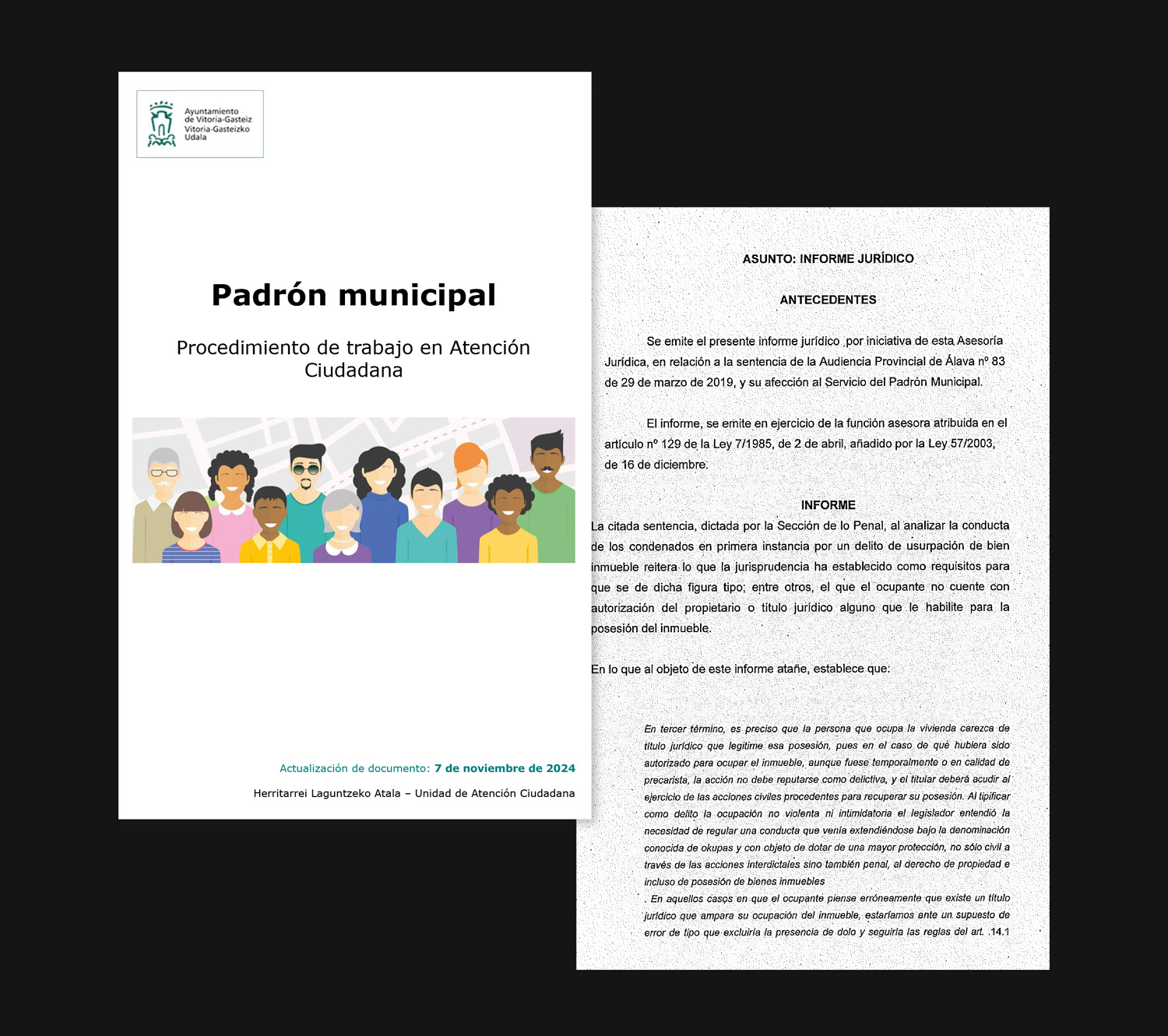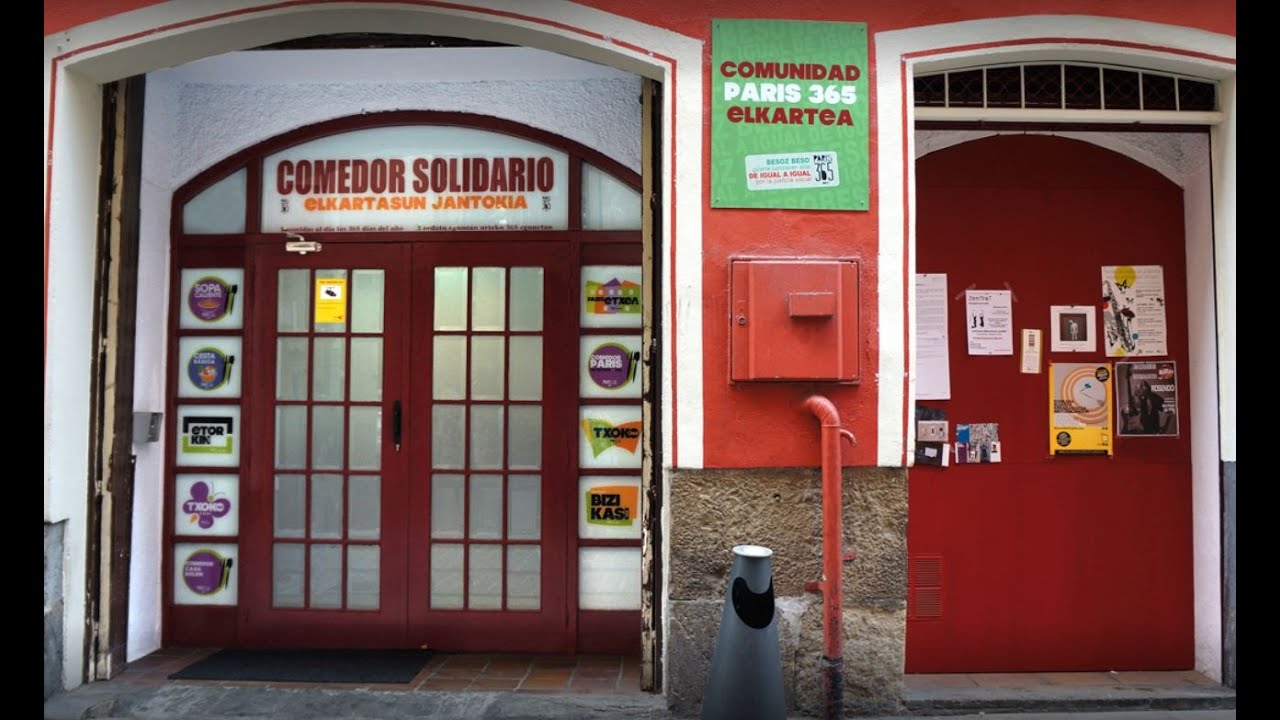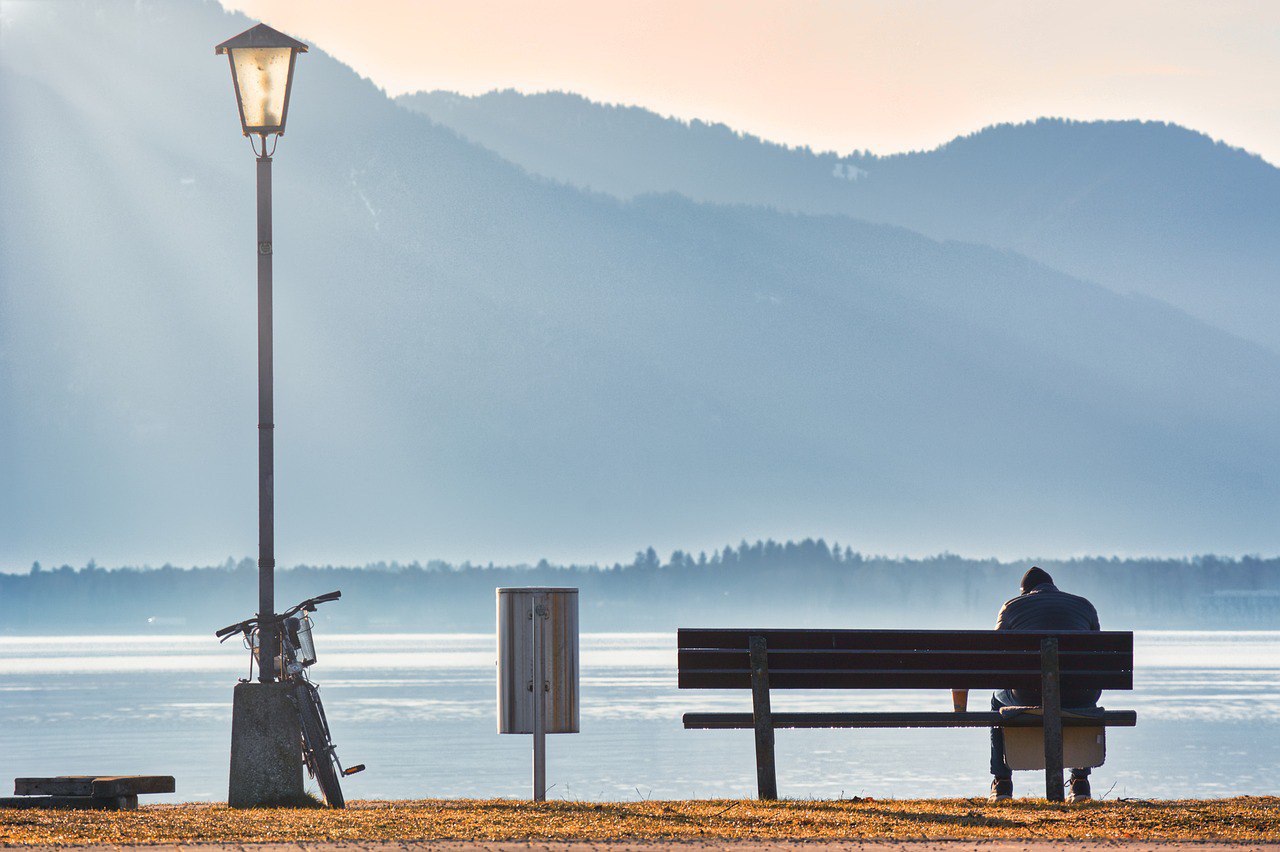"They've criminalized poverty and played with public opinion."
- On 8 June the City Hall of Vitoria-Gasteiz was evicted and dozens of local police officers were the last inhabitants of the occupied houses of Olarizu Avenue. It was the last step of the years of harassment, led by the mayor of the town, Gorka Uraran. With Maialen Sáez de Okariz Rúiz de Sabando, a member of the Inor ez Etxerik Gabe initiative in Vitoria-Gasteiz that has collaborated with Thais Madrid Vargas and its neighbours and neighbours in Olarizu, we have talked with Maialen Sáez de Okariz about the experiences of these years, the current criminalisation of poverty,

Thais, the last neighbors of the occupied houses of Olarizu were evicted from their houses in Vitoria, most had already left before... Where do you live now? Where have people gone?
Thasi Madrid (T.M) Most of us have scattered around the city occupying different dwellings. Others are in the Municipal Social Reception Centre (CAU), have also attended an abandoned workshop and a couple of families are now living in Errekaleor. Three or four people live in supervised apartments, but these are exceptional cases.
Olarizu's neighbours have looked more than a hundred. What kind of people did you have and what were the reasons for the occupation?
MM : The age group ranged from 2 to 65 years, with a great diversity in its origin: From Nigeria or Colombia, born there, among them several gypsy families... We had to occupy because we had no other option, the existing resources were complete and the social services did not offer us any solution.
In recent years you have been under great pressure from the City Hall. The statements of the mayor, the municipal police, water and light... How have you experienced that pressure?
MM : With great anguish and misunderstanding of the situation. Those who were going to give us help have forcibly treated us, pushed us and locked us in a cage. Explaining the specific situations, it is better understood what aggressions we have suffered by the City Council. For example, when we no longer had light, once the agents stole the light generators we had installed from the portals. Another of the most serious assaults occurred in the water environment. First they cut off the water, then the neighbors got three bottles of 1000 liters of water and put them in the plaza. Jon Armentia himself, a member of the Department of Social Policy, came with the municipal police to pick up the drums, and as they did not, the 3000 liters were emptied in front of our noses. At the time, they didn't even allow us to fill the bottles that we had in our hands. Many children lived in the neighborhood at that time.
The health crisis of the last year, the lockdown, the eviction order... has aggravated your situation?
MM : Since we could not leave the house in search of water, we asked through the Ararteko and the [Ombudsman of the Citizenry of Vitoria-Gasteiz] that at least one water source be offered to the City Hall. They denied the request and told us that they would send us emergency aid, but that aid never came. Many neighbors have been fined for taking water out into the street during those days.
Neighbours have denounced that they have been criminalized by some media, especially the newspaper El Correo. Why?
MM : They criminalise poverty and play with public opinion. I think of a concrete piece of news that appeared in El Correo. In a video, you saw a girl coming up on the roof and gathering junk. The incumbent was: “Okupas continue to agree with the expolio” (“Okupas continue with expolio”). In the place where they see the polio, I see a neighbor who is risking his life, he does it to find a solution to his life, because social services do not offer him any solution. Before this news appeared, social and basic emergency services were aware of the situation of each of Olarizu's neighbours.
.jpg)
In Maialen, they criticised the City Hall for its attitude in the case of Olarizu. What do you think I was going to do?
Maialen Sáez de Okariz (M.S): It is very serious that a city hall takes its city's neighbours to the streets. It is a question of guaranteeing the right to housing to the neighbours of Olarizu and putting in place the necessary resources to do so.
The mayor has insisted on several occasions that the residents should leave Olarizu and go to the basic social services of the City Hall, but the Trustee himself has stated that these services were not provided with a solution because the services are saturated. What is the situation of the basic social services of the City Hall?
M.S: Olarizu's neighbours have targeted municipal social emergency services and basic social services. In general, they have not been offered any real alternatives. They've been offered primarily the possibility of going to the CPU, but it's full, so it's not viable. In addition, this resource does not guarantee the right to housing; only access to housing guarantees the satisfaction of this right. In addition, in order to be able to reside in the HSUZ, the payment is excessive: those who work must allocate 75% of their salary to the payment of the resource and those who charge the Income Guarantee Income 30% of the benefit. The City Hall has a responsibility to guarantee the fundamental rights of citizens and to do so it has to set in motion the necessary resources. In Vitoria-Gasteiz there are resources, more than 10,000 houses are empty, but there is a lack of will.
Your criticisms have been largely customized to the mayor, Gorka Uraran. Why?
M.S: Mayor Gorka Uraran has been in charge of dealing with this issue in a personal way. The man, who sent a letter on his behalf to a number of Olarizu ' s neighbours, has made harsh and serious statements to the local neighbours. Just look at the violent tone that the eviction announced: “Said and done.” With our dimanica we want to highlight the dehumanized treatment that Uraran has given to the subject: it makes policies based on exclusion, distinguishes the “good” and the “bad” Gasteiztars.
Given the times we live, do the attitudes of the City Hall and the mayor feed the discourse of the extreme right?
M.S: The speech he uses may be aimed at attracting votes from the right. Taking advantage of this streak of criminalisation of the occupation, Olarizu’s neighbours have caricatured under the label okupa, have not treated them as people with rights. They want to put the problem of occupation at the centre of the agenda, when the real problem is that many people do not have the right to housing. Occupation is, in many cases, the only way to gain access to this right. On the day of eviction, Uraran talked about all the money he would make from the operation, and it's very significant.
Poverty has increased since the beginning of the health crisis and can be intensified in the future. Can it be a precedent for what happened in Olarizu?
We believe that yes, unemployment is rising, there will be more evictions ... The cases and attacks will be different, but it is clear that the living conditions of the citizens will worsen in the coming years. In addition, the measures being taken by the institutions in general are to protect and expand the capital of some and not to defend the rights of the citizens. We have to be prepared and together to respond to what is coming.
In Thais, Maialen, in these years, alliances have been created between neighbors and popular movements, both with the agents that make up the Inor ez Etxean initiative, and with the social movement of the city. What valuation are you doing?
MM : The support received from Errekaleor and the Inor ez Etxean Gabe initiative has been unconditional. They respond to needs not met by the City Hall.
M. S: We still have to broaden these alliances, our challenge is to put the housing problem at the center.
On Wednesday the initiative has called a demonstration, what do you want to claim with the call?
MM : We want to denounce what the City Hall has done in Olarizu, hatred of the poor, policies based on inequalities ... We take advantage of Olarizu’s denunciation to denounce the serious housing problem that occurs in Vitoria-Gasteiz in general, while people live on the street, there are still thousands of empty houses and the municipal government continues to promote the construction.
The policy of the Basque Government to criminalise the poor has become news again in November. Lanbide has created an anonymous whistleblower for honest citizens to denounce “any suspicion of irregular actions” from potentially fraudulent citizens receiving Income Guarantee... [+]
Pools can be a classroom to understand class conflict, analyzing differences between bodies. I've been swimming in municipal pools for many years. Almost always in the Aldabe Civic Center, located between the neighborhoods of Alde Zaharra and Errota. But there was a time when I... [+]
Iruñerriko Etxebizitza Sindikatu Sozialistak eta Harituk Iruñeko Udalak etxegabeentzat eskaintzen dituen baliabideak kritikatu dituzte: "Ogi apurrak dira", adierazi du Martin Zamarbide Harituko kideak. Behin behineko zenbait "aukera" ematen... [+]






















